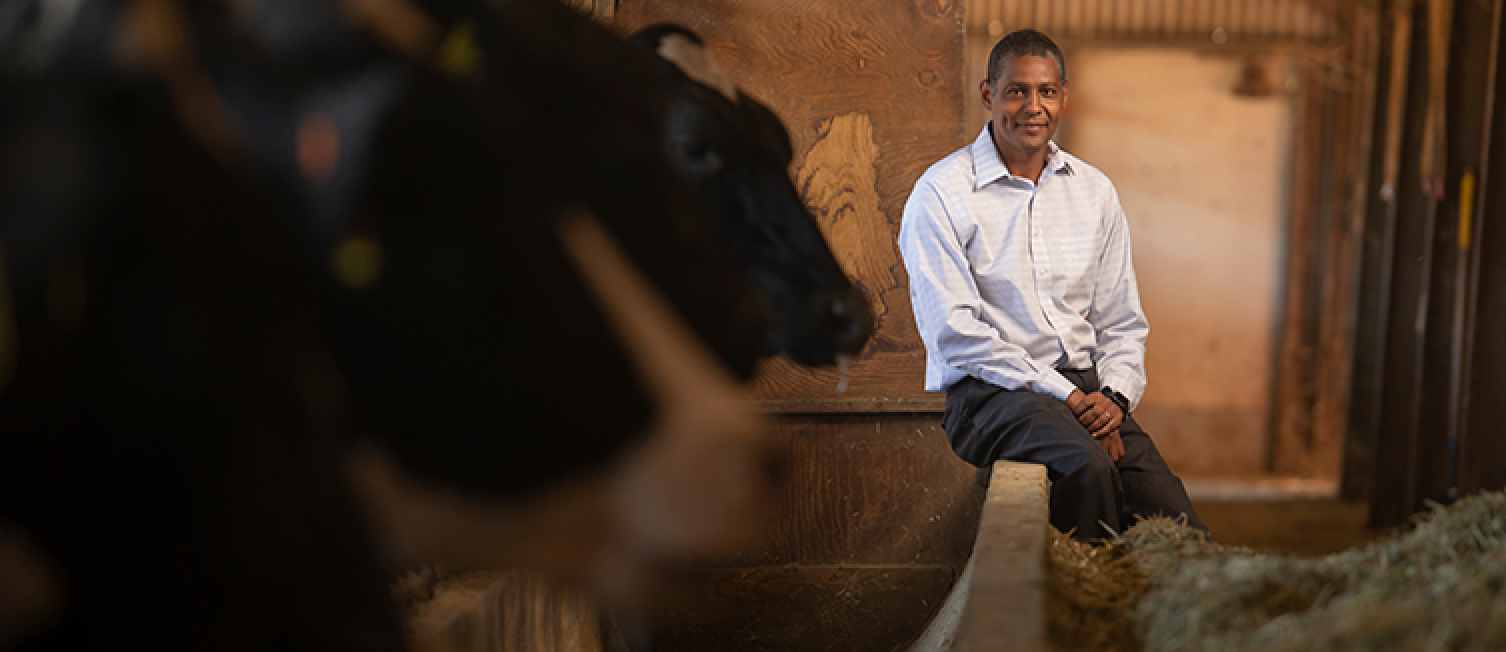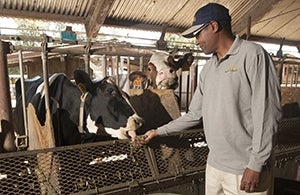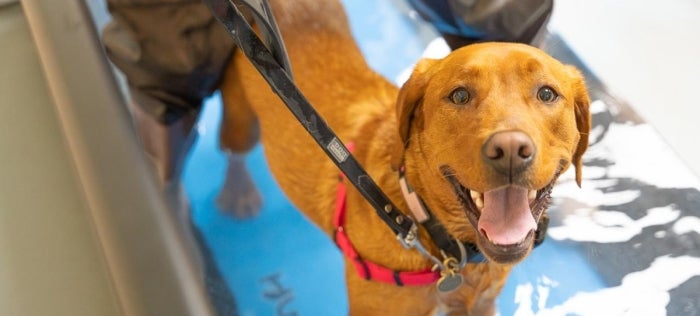
A very green diet for cattle

January 3, 2022—Last March, Ermias Kebreab, associate dean of global engagement in the College of Agricultural and Environmental Sciences, and his team announced a discovery that could change the future of livestock production: adding just a small amount of seaweed to cow diets reduces their methane emission by as much as 82 percent.
“This is really a game changer,” said Kebreab, who is also a professor in the Department of Animal Science and director of the World Food Center. “There’s phenomenal potential to reduce greenhouse gas emissions on a scale that we never thought would be possible.”
Cattle are the top agricultural source of methane in the U.S.—50 percent of anthropogenic methane emissions are released by cows and other ruminant animals.
Because methane doesn’t stay in the atmosphere as long as other gases like carbon dioxide, reducing emissions now will have visible impact on the climate within the next decade.
“Our findings could help the cattle industry get to a climate neutral position much earlier than they are currently committed to,” Kebreab said.
Since 2018, he and graduate student Breanna Roque ’20, Ph.D. ’27 have been testing seaweed and other additives in beef and dairy cattle diets and measuring the methane emitted in their breath through an open-air contraption from which the animals feed.

They are the first in the world to test seaweed in cattle diets—a creative endeavor which, Kebreab noted, was helped made possible by the support of donors.
“Donor support gives us the freedom to think outside of the box,” said Kebreab, who currently holds the Sesnon Endowed Chair in Animal Science. “It really allows us to be much more flexible and take a risk that we might not be able to take otherwise.”
Kebreab’s research has generated interest from all over the world. He is collaborating with others in Spain and Australia and gave a TED Talk in Edinburgh in October on his research. He hopes that one day this breakthrough can be implemented on a larger scale for the benefit of the whole planet.
“Climate change is one of the biggest issues that we have to solve not just for us, but also for our children and grandchildren,” he said. “It’s our duty to find a solution and leave the planet better than when we found it.”


